
- HOME
- Cosmetic OEM Lab
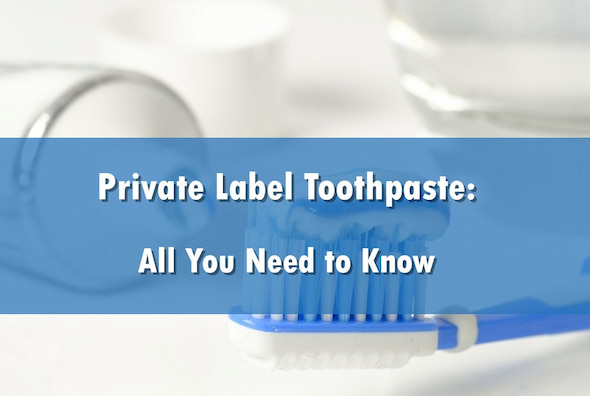
Whether you are an established company or a budding entrepreneur with an interest in private label toothpaste, you can make a name for yourself in this industry.
There are several advantages to this type of product and business line. First, you’ll get toothpaste that is tailored to your target market. Next, you’ll easily find a manufacturer who has a proven track record.
Then, all you need to do is choose the right brand name, formulate the perfect toothpaste and let the manufacturer give you the final product to go sell.
Let’s now dive into the interesting insights.
Contents
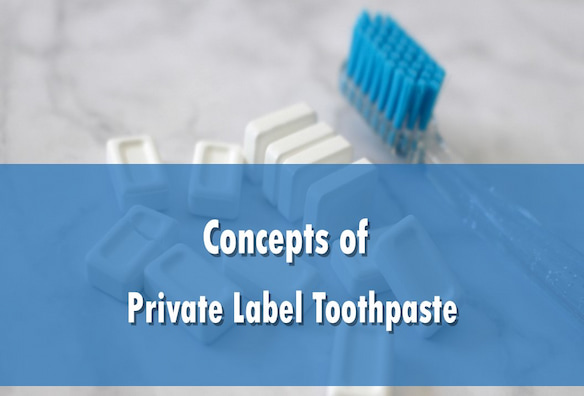
There are various options to choose from and take your brand to the market. Whichever option you choose, your private label toothpaste will be manufactured under your private label brand names, complete with your own logo and branding.
If you are considering using this method of making your own toothpaste, here are some important concepts to consider and get started.
Toothpaste for whitening uses hydrogen peroxide to help break down stains and whiten teeth. These whitening agents penetrate the tooth enamel and reach the discolored molecules inside.
The oxygen molecule interacts with the discolored molecules and lifts the stains. There are also toothpastes that contain blue covarine, which has been shown to reduce yellowing. Other kinds of toothpaste contain baking soda to polish teeth. Fluoride can protect against cavities and plaque buildup.
Toothpaste for children is also a popular oral health product that is often manufactured under a private label. As a new player, you’ll need to make sure your product stands out in the marketplace. This will involve developing a custom formulation that matches your target market. In addition, you’ll need to select a manufacturer that has a strong reputation or an even better one that specializes in toothpaste for children. This will ensure that your final private label toothpaste for children is safe and effective for your customers.
When considering toothpaste for children, you’ll want to look for a variety of key items. Fluoride and sugar-free toothpastes, for example, are both good choices, but you should also look for a kid-friendly flavor. Fluoride in particular is a must for children, an important part of the child’s oral care.
This is also a great concept to go for as you think about your private label toothpaste business. It is definitely a great niche with excellent market potential where you can easily distinguish your brand and stand out from the competition.
Some of the best toothpastes for gum disease work by eliminating plaque and reducing bleeding gums.
Fluoride toothpaste can also help to prevent and reverse early-stage gum disease, in particular. One type of fluoride that helps to prevent gum disease is stannous. This mineral is usually included in toothpastes for preventing dental cavities.
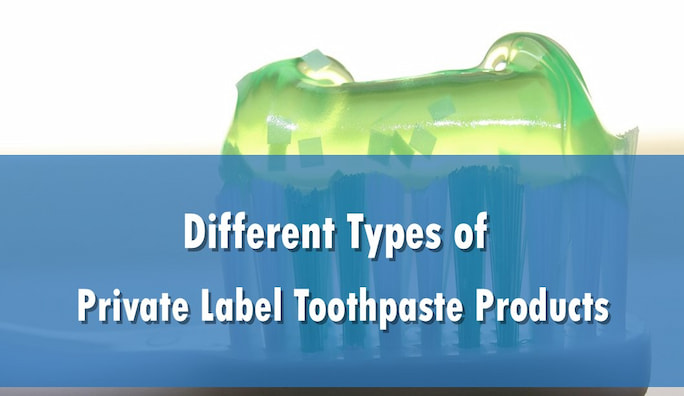
There are many different types of toothpaste for private label and they can all be great products for private labeling.
Even before you choose the type, the first and most important step is to know what your target market prefers. The next step is to decide what flavor to use. Some flavors are more effective than others, and some might be better for your target market. The next step is to find out how much your target market likes the taste of a particular type of toothpaste.
Toothpaste as we know it only came into existence in the late 1800s. The earliest forms of toothpaste were jars filled with soap or pumice. An American dentist, Dr. Washington Sheffield, invented the first jarred form of toothpaste in the 1850s. He was an instant hit with his patients, and it was soon followed by other versions that included ingredients such as ginseng and mint extracts.
The most common forms of toothpaste these days include gel, powder, and paste. Additionally, modern toothpaste is available in a variety of flavors and colors, with the most popular being peppermint, spearmint, and wintergreen. Important to note that toothpaste can also be unflavored.
Despite recent advances in toothpaste packaging, tubes remain the most common container for toothpaste. Some companies, however, have opted to ditch the tube and use dispensers instead.
Pump-style and shaving cream-style models have push-buttons, nozzles, or removable caps to help users dispense toothpaste more easily. However, tubes still make an important part of the oral hygiene aisle, and many leading brands also offer their products in flip-top bottles.
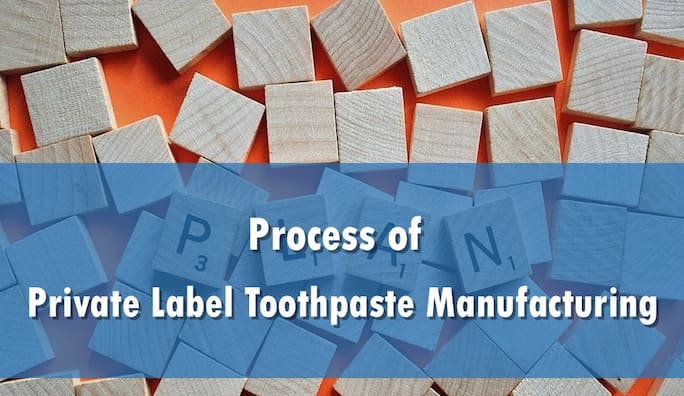
The private label manufacturing process is a convenient method of making toothpaste for your brand. It allows you to choose the ingredients and customize the product to meet the needs of your targeted market. After creating your brand, you can start the process of launching your toothpaste product.
Here is a quick look at the process of private label toothpaste manufacturing.
This is basically the elementary step in the entire process of private label toothpaste manufacturing. You start by noticing opportunities and learning that there are well-established private label manufacturers in Japan, for example, who can help you to quickly come up with your private label toothpaste.
You need to acquaint yourself with a number of facts during this stage. A good example is ingredients. Understand that toothpaste is composed of several different ingredients.
The ingredients are mixed together with precise measurement, and the ratio of each component is important for the production of toothpaste that is safe for oral use. There are many factors that go into the ratio of each component, and the manufacturers pay close attention to these factors.
Next is prototype production and there are a number of different steps involved. In this phase, the sourcing team will identify raw materials and components that will be used to make the prototype. If specific components are unavailable, they may be substituted.
The final step is to package the toothpaste. Packaging contains important information about the product, including the name, manufacturer, and product description. Some manufacturers offer more customization options than others, but there’s always a starting point.
Packaging must contain all the necessary information for consumers to understand the ingredients. The product must also pass the quality control test, depending on your target market. Once this is complete, the prototype can be sent out for testing. It should pass a rigorous checklist to ensure that it’s safe for use. During this step, the manufacturer will be keen to see if there are any quality issues.
Quotation is critical. This is where you will make important financial decisions. The manufacturer will issue a quote, based on which you will be able to arrive at a reasonable estimate of the kind of profit margins you are likely to earn.
Make a point of receiving quotes from at least three different manufacturers, compare them and go with the best option. Remember that the cheapest quotation might not necessarily be the best. Instead of focusing so much on the absolute cost as per the quotations, look carefully at what each manufacturer offers in terms of quality and support. Then go with the best among them.
You can check the samples that a manufacturer has created to get a good idea of how the finished product will look. Also, you can ask for their past and current customers’ reviews.
By this time you have made the most critical decisions, you are now ready to proceed. Be sure to read through the manufacturer’s fine print before you place the order. Understand their timelines and negotiate for adjustments if you are not comfortable with any aspects of the ordering process.
If you can arrange it, consider involving a lawyer when signing any agreements, and be sure to ask as many questions as possible.
This is the final stage. By now you have done all the hard work, now is time to run the machines and get the product out. The manufacturer will inform you when production is scheduled to start. You might want to be present during production just to be sure everything is running smoothly, though it is not a must because by this time you should already trust the manufacturer to get the job done.
The manufacturer will alert you when production is complete, which will also signal the start of delivery i.e shipping your private label toothpaste to your premises, ready for the market. Your marketing campaigns should be on top gear by the time your freshly manufactured private label toothpaste arrives.
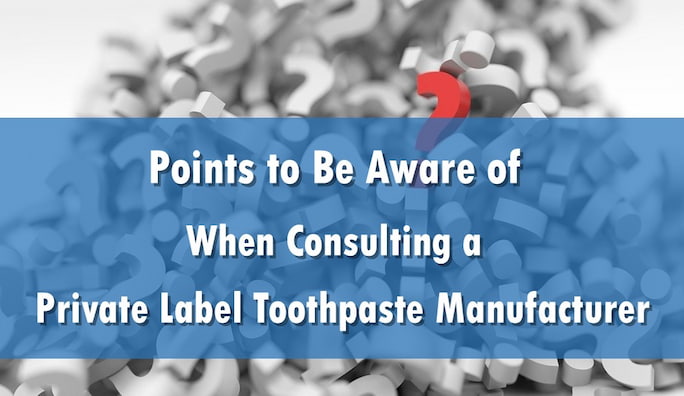
The first thing to consider when consulting a toothpaste manufacturer is the quality of the product. The manufacturer must be able to meet all the legal quality requirements. They should also be able to show their inventory of raw materials and finished products. The company should also have R&D capabilities. It should be able to meet the requirements of the private label manufacturing business.
For each manufacturer you talk to, never forget to ask about their Minimum Order Quantity (MOQ). You could find a very good manufacturer whose MOQ is so large that it may not be suitable for you.
If you want to start with a small batch, you need to go for a smaller-scale manufacturing facility or a facility that accommodates small quantities. Some manufacturers are more than willing to accommodate small orders as low as 500 pieces.
However, it is beneficial to keep in mind that, the lower the quantity is the higher the price gets. Even though this depends on the manufacturer, 1,000 pieces is the industry standard in Japan. Prices tend to go down significantly at a quantity of 3,000 pieces and over.
Like all other cosmetic products, toothpaste is highly customizable and can be formulated to cater to a specific demographic. This makes it easy for new entrants to break into the market, as long as you can come up with a unique product and select the right ingredients. Getting the right ingredient mix is crucial to the success of the toothpaste.
For example, sugar substitutes are sometimes used as flavoring agents and aren’t considered harmful to teeth. Others, such as glycol agents, are used for foaming purposes. Sodium lauryl sulfate is a common ingredient, derived from palm kernel oil or coconut oil. While sodium lauryl sulfate is safe to use in toothpaste, it may increase irritation to the mouth in individuals prone to canker sores.
Triclosan is a common organic chemical compound used in most toothpastes. Its properties make it effective as a foaming agent, but it’s also known to cause canker sores. Please note that as of 2019, triclosan is not a legal ingredient in toothpaste manufacturing in the U.S.
These are just examples. Discuss in detail and analyze the kind of ingredients that the manufacturers have or can access. Remember you are trying to create a unique brand, so the responsibility is on you to think through the ingredients you want to go into your private label toothpaste.

In conclusion, if you’re thinking of creating your own toothpaste product but aren’t sure where to start, private labeling is an excellent way to get off the ground. And, the best part is that you can create your own formulation to meet your brand’s specific needs.
Not only does private label toothpaste allow you to control the ingredients and the manufacturing process, but it also allows you to create your own brand and promote your business.
Feel free to contact us regarding any inquiries you have about private label toothpaste or any type of cosmetic products.
For further information, please contact us.